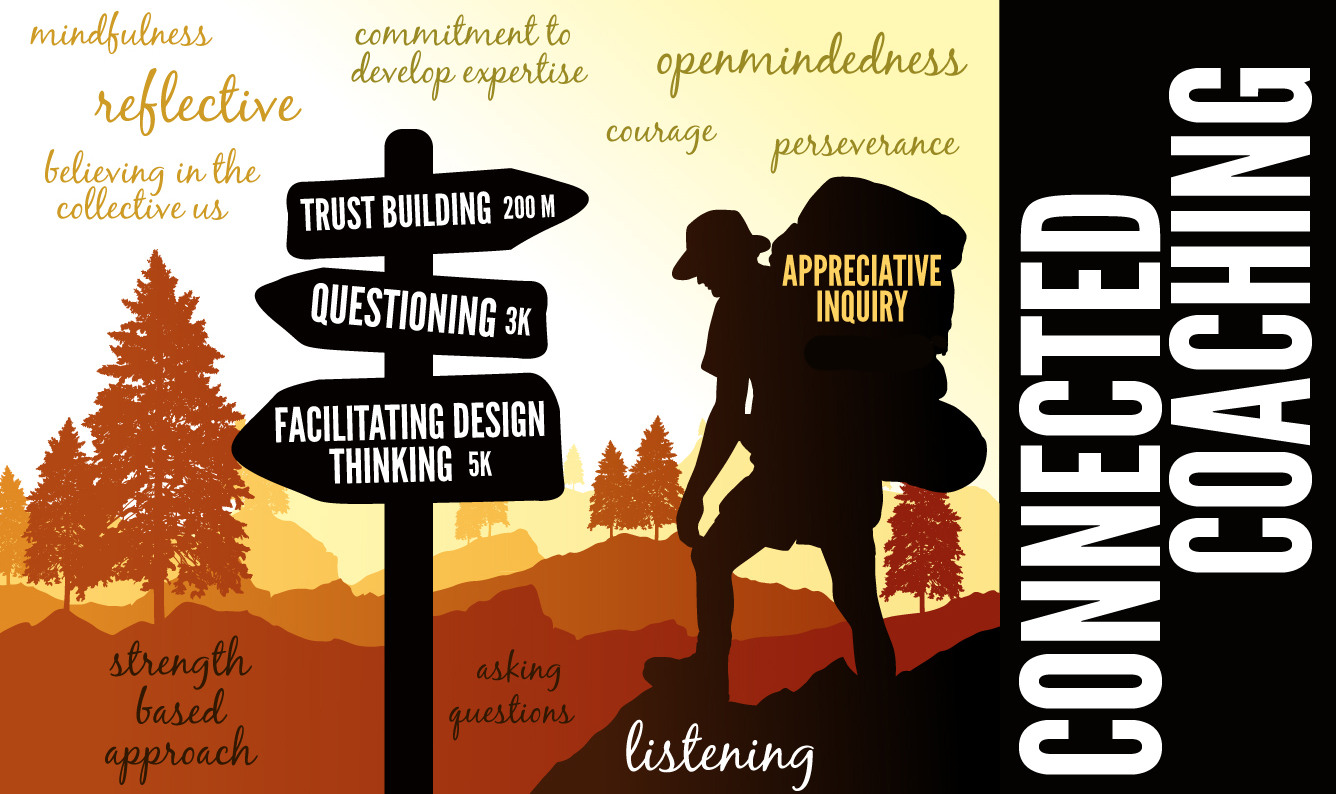Note: This post was published in the PLP Community Hub by Sarah Blattner, a Powerful Learning Practice Connected Coach who recently completed the Connected Coaching eCourse. It is cross-posted here with her permission.
I am so grateful for my experience as a connected coach in PLP. I approached the learning like I usually do, diving in with both feet. The more I learned, the more I wanted to learn. The more I learned, the more I realized what I do not know or what I have not mastered. And the journey will continue–lifelong.
The main difference between this learning experience and others that I have had as a learner is that it was a co-learning experience–I have never been part of something that was truly a co-learning experience in an online space. I have led online classes, and I have taken online classes, but never before have I felt this level co-learning. I relied heavily on what my fellow PLPeeps said in the webinars, their comments on the weekly discussions, and the resources they shared. With out my learning community, I would not have grown nearly as much as I have. I have admiration and respect for each voice that I encounter in the community. I am always delighted when someone makes a comment on one of my ideas, helping me push my own thinking deeper, farther. This is authentic learning–it is self-directed, collaborative, reflective, supportive, messy and it is a discovery process by doing and sharing. Isn’t this what we want for our own students as well? This is the heart of all the edubabble about 21st Century learning. We exuded 21st Century learning, model best practices that we hope our own schools will attain.
What left an indelible mark on my own coaching perspective is the notion of starting from a strengths-based approach and empowering others to be positive deviants and change agents within their own systems of practice. I think as teachers, we have been taught to look for what is wrong–find the errors. The art of coaching demands that I can ask thoughtful questions couched in strengths and positivity, rather than focusing on what is not working. An artful coach knows when to prod and when to back off, when to send “happy grams” and when to redirect a group with a thought-provoking question. An artful coach knows how to actively listen and paraphrase. A Positive, strengths-based approach will also make me a better practitioner in the classroom–all of these skills can be applied to what I do as a tech teacher, yearbook advisor and professional development leader within my own school. And what is the most exciting about all of this is that we get to make a real difference in the lives of our colleagues, in the structures of schools and the institution of education as we know it, and ultimately make a positive difference for kids.
Moving forward, I am supercharged and energized more than ever. I feel like I am empowered to make a difference, and I have a new arsenal of understandings, tools and colleagues to call my own. I want to revisit many of the resources that were shared in the coaching community. I want to read the entire book Evocative Coaching, as well as The Connected Educator. I want to take what I have learned and take it to the next level. I have plans to experiment with online communities of practice within my own school community, so that I can continue to grow as a connected coach and learner. I want to develop my own use of Twitter more–something that I was not so interested in until recently because of this course. And finally, I want to help my teams put together their action research projects, so that they have a meaningful project to implement in the years to come.
PLP loves preparing educators and administrators to coach in online spaces and leverage the affordances of technology for coaching. Here’s a few additional reflections of how this eCourse has impacted other participants:
- Reflection of a connected coach who lives in Denmark http://is.gd/lDGsFE
- Reflections of a Canadian district administrator who is serving as a coach http://is.gd/3ByiUX
- Reflection of a Catholic school admin serving as a coach http://is.gd/I89WDt
- Reflection of a PLP advisor, administrator and English teacher from Oslo Norway http://bit.ly/HIfBcO
- Reflection from a connected coach and fourth grade teacher in Virginia http://bit.ly/H4y2s3
If you want to learn how to coach others as they shift their practices, sign up for the next section of this eCourse as an individual or with a group of your colleagues (school/group discounts available). If you’d like to connect further with Sarah Blattner, her voice can be heard on Twitter: @techbabble88 and through her blog.
Lani Ritter Hall
Latest posts by Lani Ritter Hall (see all)
- Through new lenses– - January 5, 2015
- Connected Coaching: Reflections & a new course starting soon! - September 24, 2013
- Virtual Classroom Visit — Sketch Up and Google Hangouts in a 3rd grade classroom - April 15, 2013



Trackbacks/Pingbacks